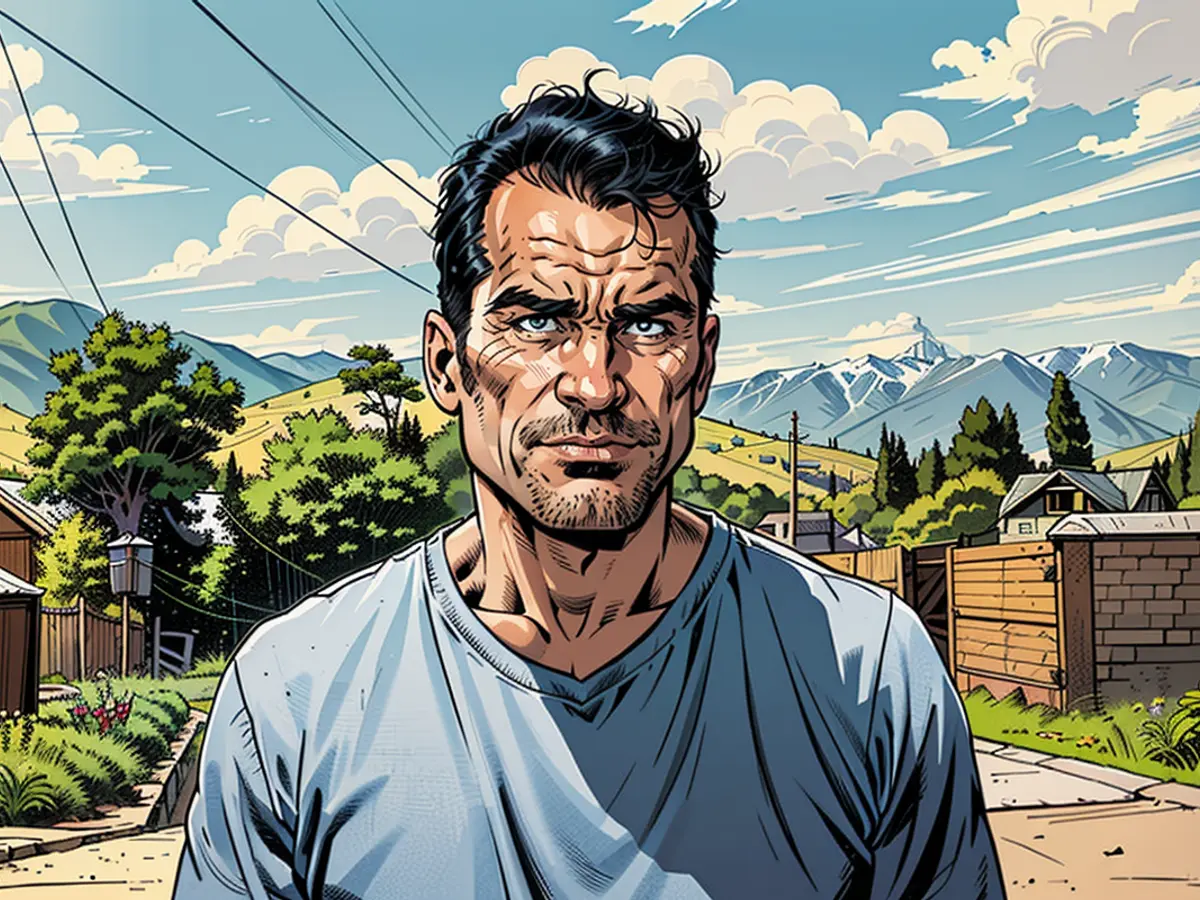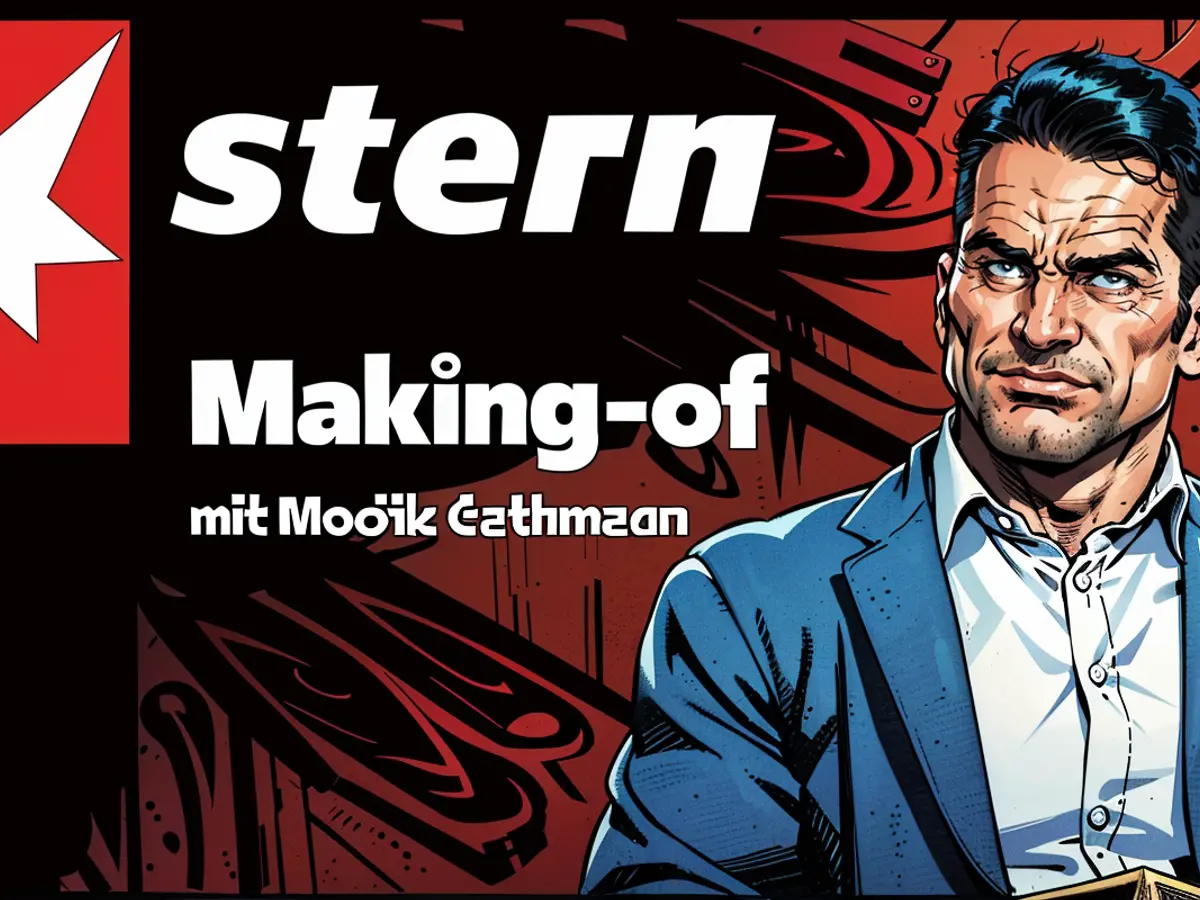Behind the story - Why Terrorism Research in Tajikistan Brought Me into Conflict
"Protecting from harm", as the saying goes, is a fundamental principle that doctors around the world have been committed to for millennia. I had to ponder this a lot during a research trip that took me to Tajikistan in June.
Tajikistan is a dictatorship where repression is worsening year by year: While Freedom House gives it two more points than North Korea in its freedom ranking, it's still less free than neighboring Afghanistan, which is led by the Taliban.
In milder moments, the dictatorship produces absurdities.
Tajikistan Endorses Reports of Islamic Terrorism
The multi-story exhibition on Tajik history at the newly established National Museum does not mention the civil war that took the lives of up to 50,000 people in this country between 1992 and 1997. Instead, it praises the rise of current president Emomali Rahmon, who united modern Tajikistan.
When stern visited the country's mufti, the religious leader of Tajik Muslims, the government's religious authority sent a representative to the interview: The man, almost certainly a secret service agent, sat smiling at the table throughout the conversation.
I was surprised that we even got accreditation from the Ministry of Foreign Affairs: I had written in the application that we wanted to deal with the topic of Islamic terrorism. Only after my arrival did I understand the logic: For the regime, which presents itself to the outside world, including Western countries, as a fighter against the Islamic threat, publications on this topic are even useful.
In less mild moments, the dictatorship puts a foreign journalist in a nearly unsolvable dilemma.
How Can One Research Without Endangering Interlocutors?
Photographer Konstantin Salomatin and I traveled through the country and visited the wives of men who carried out the IS attack on the Moscow concert hall Crocus City Hall in March. We also met relatives of Tajiks who were in prison in Germany on terror charges, or had been. We also met the wife of an opposition figure who has been serving a life sentence since 2015.
We were received everywhere: Tajik culture, which dictates that guests should first be welcomed into the house, is stronger than the fear of political persecution. But with each meeting, my discomfort grew. I realized that I could already cause problems for people just by visiting them.
People whose relatives lived in Germany reported that police and other authorities visited them regularly: They were supposed to put pressure on their sons or husbands to return home. In most cases, returning to the country means immediate arrest, an opaque trial, and a long prison sentence. "If you can help, do it. But if you can't help, at least don't harm us," a mother pleaded with me. Some relatives of the Moscow attackers reported that the police had forced them to sign a confidentiality agreement. If they spoke anyway, they would have to pay a fine equivalent to a year's income in Tajikistan.
We, the reporters, didn't feel pursued during our investigation: There were no cars with tinted windows, no men secretly following us. Yet, we are convinced: Our visits to the villages did not go unnoticed. Neighbors or other informants would notify the police. This would then lead to new visits by the authorities, new psychological pressure on the relatives.
In the capital Dushanbe, the wife of an opposition figure told us how the police knocked on the door shortly after the arrival of a French journalist team: The arrival of the reporters had apparently been reported directly. The journalists hid in a room before the police entered the apartment. The police then left empty-handed.
We were always aware: We, the foreign journalists, were not immediately in danger. As mentioned, our accreditation from the Ministry of Foreign Affairs gave us the right to work there. At most, we would have risked an unpleasant conversation with police or intelligence officers.
It's a balancing act between personal privacy and information interest
But how do we write about our encounters if my mere presence there causes great problems for the people? And does it even make a difference not to write about the encounter if the police and intelligence services already know? It's a dilemma that many journalists face, especially in more authoritarian countries. But it shouldn't stop us from reporting. Because that's exactly what authoritarian regimes want.
In the end, only a compromise between protecting people and the interest in information can be found. This can mean anonymizing or even omitting encounters or conversation contents if they would obviously harm the person. Because the answer to the following question should be clear to every journalist: What is more important - a text or a human life?
Despite the regime's efforts to present itself as a fighter against the Islamic threat, the country's officials were hesitant to engage with reporters investigating Islamic terrorism, such as the Islamic State. In fact, when stern magazine's team wished to explore this topic during their research trip, they only received accreditation after stating their intentions in their application. This cautious approach suggests that even the government acknowledges the potential risks associated with reporting on radical Islamic groups.









